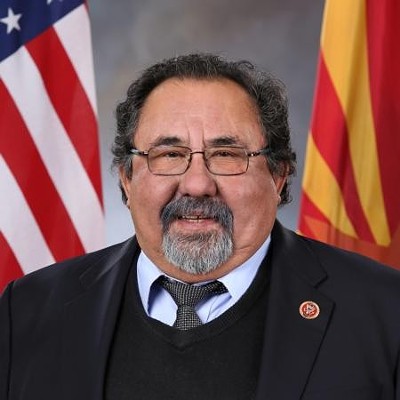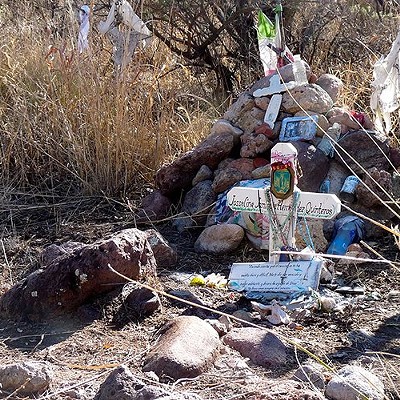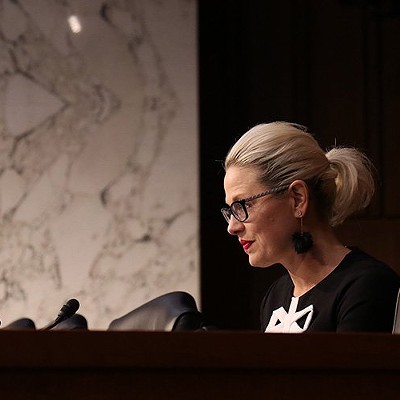Monday, January 4, 2016
DHS Sec. Jeh Johnson: More Border Security, Deportations Don't Address Violence, Poverty in Central America (But We Still Have to Do It)
The U.S. Department of Homeland Security says that 121 individuals were taken into custody over the weekend—primarily from Georgia, Texas, and North Carolina—as part of the Obama administration's efforts to remove hundreds of undocumented migrants from Central America who unsuccessfully sought asylum in the country. The families are being temporarily held at Immigration and Customs Enforcement "family residential centers" for processing, while arrangements for deportation are made.
Although DHS Secretary Jeh Johnson supports the removals, he said in a statement today that increasing border security and enhancing deportation methods does not address the violence and poverty that push most migrants to flee Honduras, El Salvador and Guatemala.
Johnson pointed to improving programs that promote legal and safe migration, and also applauded Congress for enacting an omnibus spending bill that included $750 million in aid for Central America—a move that's honestly problematic, as governments in the region are heavily corrupt. Hopefully those funds will be invested in areas that address migration from the roots.
DHS and the Department of State are accelerating the development of new mechanisms to process and screen Central American refugees in the region, about which we hope to make a more formal announcement soon. We will expand access to the U.S. Refugee Admissions Program in the region and develop more legal alternatives to the dangerous and unlawful journey many are currently taking in the hands of human smugglers.The upcoming methods for refugee processing will branch out off of the existing Central American Minors Program, which helps minors in the region apply for asylum while in their native country, if the kids have parents who lawfully live in the U.S. As of now, more than 6,000 children have applied for the relief, Johnson says in his statement.
Needless to say civil rights and immigration advocacy groups condemn the raids that made their debut right at the beginning of the new year. Cecillia Wang, director of the American Civil Liberties Union's Immigrants' Rights Project, issued this statement:
These raids are a scare tactic to deter other families fleeing violence in Central America from coming to the United States. Secretary Johnson has himself admitted the raids are designed to deport as many as possible, as quickly as possible. The administration is doubling down on a system that is rigged against these families. Many of these mothers and children had no lawyers because they could not afford them. Without counsel, traumatized refugees don't understand what is happening in court and cannot get their legitimate asylum claims heard.In his statement, Johnson said he knows there are many who "loudly condemn" the enforcement efforts "as far too harsh," and that he recognizes the "pain" deportation causes.
But, we must enforce the law consistent with our priorities. At all times, we endeavor to do this consistent with American values, and basic principles of decency, fairness, and humanity.According to the Los Angeles Times, unlike similar raids that happened in the mid-2000s, this time immigration agents do not plan to conduct workplace raids and other mass enforcement. Instead, they will focus checking up home address of families with deportation orders.
In 2014, the influx of hundreds of thousands of migrants from Guatemala, Honduras and El Salvador, including more than 60,000 unaccompanied minors, triggered what the federal government called a humanitarian crisis. The removal enforcement efforts underway are targeted toward all of those who crossed into the U.S. after May 2014, and who since then have been issued a deportation order, because immigration courts denied any asylum requests, or they simply did not qualify for any other humanitarian relief.
Since the crisis, the U.S. and Mexico have teamed up with harsher border security to prevent Central Americans from embarking north. Johnson says this cooperation will expand.
In particular, we are working with our Mexican partners to enhance joint efforts on our shared border, to support Mexico’s efforts on its southern border, and to shut down the criminal groups and illegal support networks that exploit vulnerable migrants. DHS and the Department of State will also continue to support the Merida Initiative, the longstanding partnership between the United States and Mexico to fight organized crime and associated violence.
Tags: department of homeland security , immigration and customs enforcement , jeh johnson , central america , guatemala , el salvador , honduras , raids , deportation , immigration














